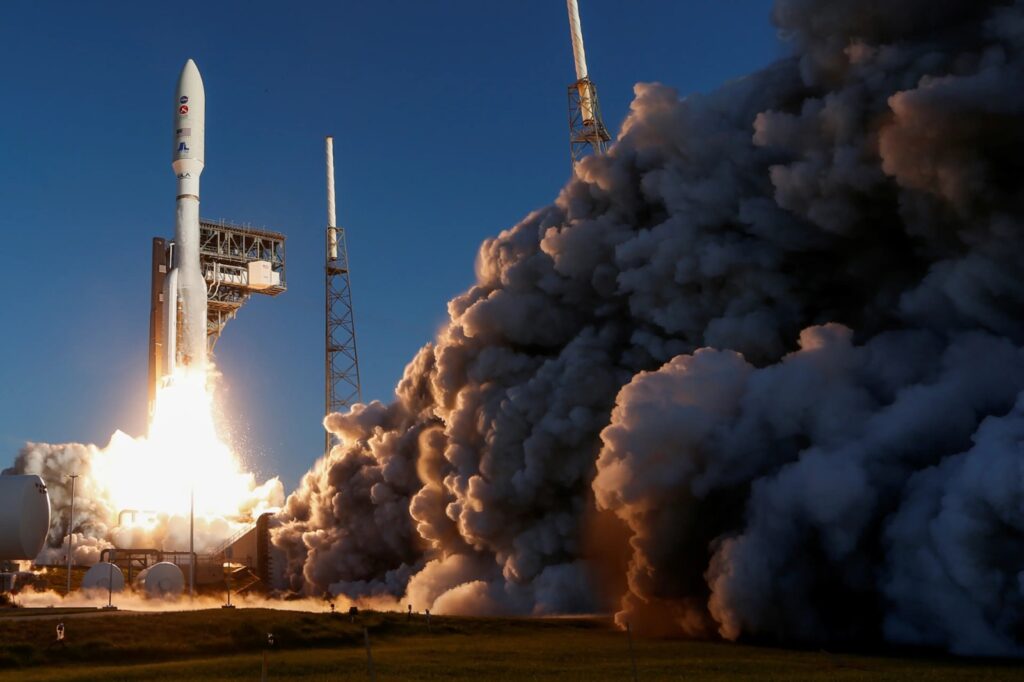Space exploration is a fascinating topic because it’s both inspiring and complex. On one hand, it unites humanity through incredible achievements, but on the other, it highlights division between nations.
International Cooperation in Space
Take the International Space Station (IIS) for example. It’s one of the best examples of international teamworks we’ve seen so far. Built in 1998, it’s a massive science lab floating in orbit, with over 15 countries including the United States(US), Russia, Japan and several European nations working together to keep it running. Even when political tensions flare up on Earth, like that of the U.S. and Russia, astronauts from these countries continue to collaborate on board. It’s proof that when it comes to space, shared goals can bring and unite people.
Space exploration isn’t just about teamwork. It’s also about inspiring people. Think about the Apollo 11 Moon landing in 1969. Sure, it was a U.S mission, but billion of people around the world tuned in to watch humans set foot on the Moon for the first time.Most recently, the image from the James Webb Space Telescope have captivated people worldwide, showing us breathtaking view of distant galaxies and remind us how much there is to explore and understand.
The overview Effect: A shared Perspective
Astronauts often talk about something called the ‘overview effect’. Imagine looking at Earth from space: no border, no division, just one beautiful, interconnected planet. That’s what they see, and it often changes how they think. Many of them return back with a deeper sense of responsibility to protect the planet, especially when it comes to issues like climate change. It’s a viewpoint that brings people together to address shared challenges.
Competition in Space Exploration
That said, space exploration hasn’t always been about unity. During the Cold war of 1947 to 1989, the Space Race between the US and Soviet Union (USSR) was more about competition than collaboration. The moon landing was as much providing ideological superiority as it was about science. President John F. Kennedy even called space ‘the new ocean’, making it clear that dominating this frontier was a priority for the US.Today, we see echoes of that competition with countries like China and India making big moves in the field of space exploration. China’s Chang’e missions and India’s Chandrayaan-3 Moon landing are incredible accomplishments, but they also add to a growing sense of rivalry in space.
Commercialization and Ethical Challenges
There’s another layer to this: the commercialization of space. Companies like SpaceX and Blue Origin have made space more accessible, which is great for innovation. But it also raises some tricky questions. Who gets to profit from space? What happens if private companies start claiming resources like lunar materials or asteroid materials? Agreements like Artemis Accords aim to address these issues, but not everyone sees them as fair, especially smaller or less wealthy nations.
The militarization of space
Then there’s the issue of militarization. Countries like the US, Russian and China have developed technologies that could be used in space warfare, such as anti-satellite weapons. This makes space exploration feel less like the peaceful, scientific endeavors it was once imagined to be and more like another arena for geopolitical conflicts.
Moving Forward: A shared Future in Space
Despite these challenges, there’s a lot of hope for the future. Some experts suggest creating a global framework, similar to the Antarctic Treaty, an agreement that ensures Antarctica be used for peaceful purposes and not for military or territorial conflicts. This is to ensure that space remains a shared resource for all of humanity. If we can find ways to balance collaboration with competition, space exploration could continue to inspire and benefit people everywhere.
So, in a nutshell, space exploration reflects who we are as a species. It shows our capacity for collaboration and innovation but also our tendencies toward rivalry and inequality. The question is: will we let our divisions hold us back, or will we work together to explore the universe in a way that benefits everyone.
References:
NASA. “International Space Station Cooperation.” NASA, https://www.nasa.gov/international-space-station/space-station-international-cooperation/ Accessed 20 Dec. 2024.
“Apollo 11 and the World.” National Air and Space Museum, https://airandspace.si.edu/stories/editorial/apollo-11-and-world. Accessed 20 Dec. 2024.
“International Space Station Legal Framework.” European Space Agency, https://www.esa.int/Science_Exploration/Human_and_Robotic_Exploration/International_Space_Station/International_Space_Station_legal_framework. Accessed 20 Dec. 2024.
“International Cooperation in Outer Space.” U.S. Mission to International Organizations in Vienna, https://vienna.usmission.gov/international-cooperation-in-outer-space/. Accessed 20 Dec. 2024.
“A Shared Frontier? Collaboration and Competition in the Space Domain.” Harvard International Review, https://hir.harvard.edu/a-shared-frontier-collaboration-and-competition-in-the-space-domain/. Accessed 20 Dec. 2024.
Antarctic Treaty System. Antarctic Treaty Secretariat, www.ats.aq/index_e.html. Accessed 20 Dec. 2024.
NASA. “The Artemis Accords: Principles for Cooperation in Space Exploration.” NASA, https://www.nasa.gov/artemis-accords. Accessed 20 Dec. 2024.
“How Landing on the Moon Changed Our World.” State of the Planet, Columbia University Earth Institute, https://news.climate.columbia.edu/2019/07/17/apollo-11-moon-landing-science/. Accessed 20 Dec. 2024.
Taylor Wessing. “The Militarisation of Space: Navigating the Legal Void.” Taylor Wessing, 2024, https://www.taylorwessing.com/en/interface/2024/the-space-race/the-militarisation-of-space-navigating-the-legal-void. Accessed 28 Dec 2024
“The Space Race: Timeline, Cold War & Facts.” HISTORY, A&E Television Networks, 21 Oct. 2019, https://www.history.com/topics/cold-war/space-race. Accessed 28 Dec 2024
“International Cooperation & Space Exploration.” Baker Institute for Public Policy, Rice University, https://www.bakerinstitute.org/research/international-cooperation-and-continuing-exploration-space. Accessed 20 Dec. 2024.

